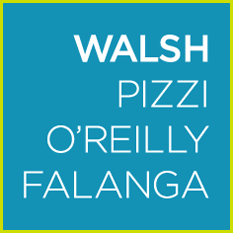Client Alert – New Jersey Governor Signs Additional Bills Into Law Related to Coronavirus/COVID-19 Crisis
On April 14, 2020, New Jersey Governor Phil Murphy signed several bills into law aimed at further assisting New Jersey residents and businesses in dealing with the Coronavirus/COVID-19 crisis. Before reaching Governor Murphy’s desk, the bills were voted on in the Senate’s first-ever remote voting session on April 13th. The new laws approved by the Governor include, among other things, measures to expand the state’s paid family leave program, legislation permitting leaders of not-for-profit organizations to hold virtual meetings during a declared state of emergency, a law permitting a notary public to perform certain notarial work remotely during the COVID-19 public health emergency, legislation protecting health care facilities and professionals treating patients during the COVID-19 state of emergency from malpractice claims, and permission to use virtual or remote instruction to meet minimum 180-day school year requirement.
S2374 – On April 14, 2020, Governor Murphy signed new legislation again expanding the New Jersey Family Leave Act to address COVID-19 related circumstances. Under S2374, family leave now includes time off for employees who need to care for a child when the child’s school or childcare is closed due to the epidemic, to care for a family member as a result of measures to prevent the spread of a communicable disease, or to care for a family member who is advised to self-quarantine by a healthcare provider. Under the Family Leave Act, employees are permitted to take up to 12 weeks of family leave during a 24-month period. The law imposes certification requirements for taking this leave, and intermittent leave is available in certain circumstances. This new law takes effect immediately and is retroactive to March 25, 2020.
S2353 – Under S2353, which Governor Murphy signed into law on April 14, 2020, the NJ WARN Act (Worker Adjustment and Retraining Notification Act) has been amended. The NJ WARN Act was scheduled to have amendments take effect on July 19, 2020. The effective date of those amendments is now pushed back to 90 days after the governor’s stay-at-home executive order is terminated. Further, the definition of “mass layoff” was amended to exclude layoffs that occur due to a “national emergency,” meaning mass layoffs occurring as a result of the COVID-19 crisis do not trigger NJ WARN Act applicability. This change is effective as of March 9, 2020.
S2333 – This legislation provides immunity to certain health care professionals and health care facilities from certain medical malpractice claims alleging injury or death incurred during the Public Health Emergency and State of Emergency declared by the Governor in Executive Order 103 of 2020. This legislation also facilitates the issuance of certain temporary licenses and certifications during the state of emergency.
S2342 – Permits not-for-profit corporations to hold virtual meetings to allow members to participate in meetings by means of remote communication and allows nonprofit corporations to hold meetings in part or solely by means of remote communication during state of emergency.
S2336 – Allows remote notarial acts during the current state of emergency, by way of communication technology permitting the notary public and a remotely located individual to communicate with each other simultaneously by sight and sound.
S2337 – Permits use of virtual or remote instruction to meet minimum 180-day school year requirement under certain circumstances, with respect to public schools and approved private schools for students with disabilities.
For more information about the Governor’s newest legislation, please contact Hector D. Ruiz at [email protected] or (973) 757-1019, or Caitlin Cascino at [email protected] or (973) 757-1024.
Walsh Pizzi O’Reilly Falanga LLP has prepared the content of this alert for general informational purposes. The content should not be considered advice, recommendations, or an offer to perform services. You should not act upon any information provided in this alert without seeking professional legal counsel from an attorney licensed to practice law in your jurisdiction. No representations are being made as to the completeness or accuracy of the information contained herein.

